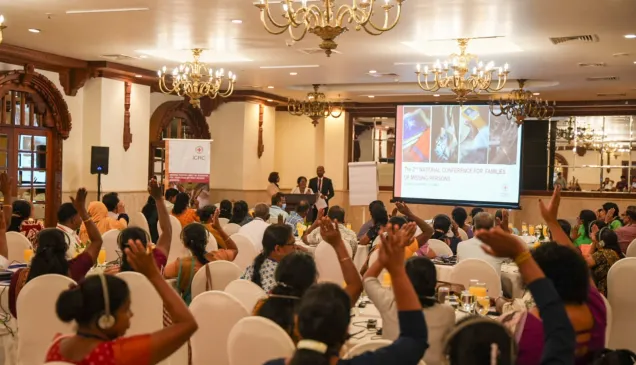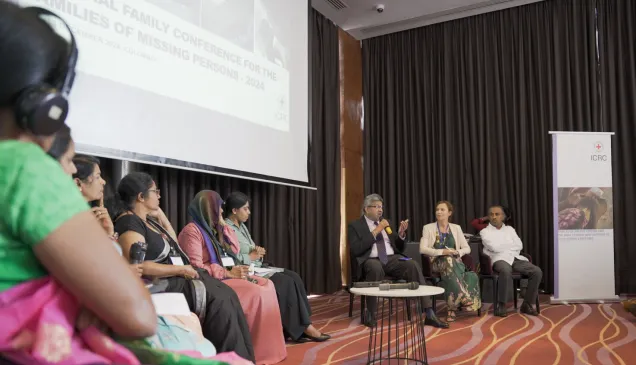Sri Lanka: Ambiguous Loss

While it is very painful to contend with the tragic loss of a loved one, most people develop their own coping mechanisms to deal with the grief caused by death. However, what happens when a loved one goes missing and there is no news for years? The uncertainty surrounding the disappearance of a loved one leaves families in limbo, unable to mourn and caught between constant hope and despair.
Many family members of missing persons do not stop searching for answers and keep waiting for some new while struggling to cope with the ambiguity of their loss. This state of uncertainty, marked by the lack of facts surrounding the loss of a loved one, is referred to as “ambiguous loss”.
Understanding ambiguous loss
Ambiguous loss, which is sometimes also referred to as frozen grief, describes the debilitating impact of losing a family member and not knowing their fate and whereabouts. Unlike death, this loss does not allow opportunities for closure and resolution, which freezes the process of grieving.
As this often leaves the affected families feeling helpless, hopeless and exhausted, it has been described as “the most distressful of all losses”. Despite the severity of the condition, ambiguous loss remains largely unacknowledged in most societies, including in Sri Lanka.



